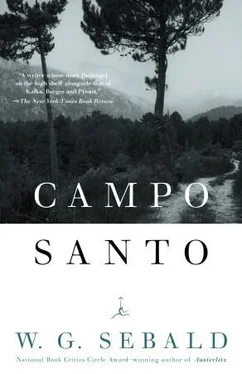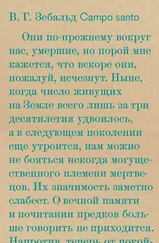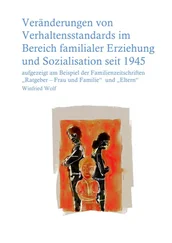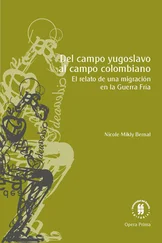Chatwin was born into a family of building contractors, architects, lawyers, and button manufacturers who became firmly established in the upper middle class of Birmingham during the Victorian era but who also — how could it be otherwise under the auspices of high capitalism? — included among their numbers some soldiers of fortune, failures, and even criminal offenders. His father, Charles, who was called up into the navy in 1940 and was based in Chatham, spent the war years at sea as captain of a destroyer and was only a visitor at home, so that the child and his mother spent the early period of his life mainly with grandparents and great-uncles and aunts, moving easily in an extended and quasi-matriarchal society which must have given him not so much a strict sense of family as a certain clan feeling, and his mother’s or grandmothers’ brothers would have featured as his male role models. One of these uncles, who was very fond of his sister’s blue-eyed child, told the biographer that Bruce noticed everything from an early age and looked at it like a scholar. “And I thought it important,” he added, “that he should become articulate.”
Chatwin, according to Shakespeare’s informant, did indeed develop extraordinary eloquence and imaginative power. Like every true storyteller who still has links with the oral tradition, he could conjure up a setting with his voice alone and populate that stage with characters partly real and partly invented, moving among them just as his china collector Utz moves among his Meissen figurines. Chatwin too, as the invisible impresario of all that is extravagant, wears — even when he is traveling in the desert — a theatrical robe like the housecoat that hangs in Utz’s bathroom, a masterpiece of haute couture in quilted, peach-colored silk with appliqué roses on the shoulders and ostrich feathers around the velvet collar.
As a pupil at Marlborough College, one of the best schools in the country, Chatwin had a not very illustrious career, and by his own admission shone only as an actor, particularly in female roles, for instance in plays by Noël Coward. The art of transformation that came naturally to him, a sense of being always onstage, an instinct for the gesture that would make an effect on the audience, for the bizarre and the scandalous, the terrible and the wonderful, all these were undoubtedly prerequisites of Chatwin’s ability to write. Scarcely less important must have been his training at the London auction house of Sotheby’s, where he gained access to the treasure chambers of the past and acquired an idea of the singularity of artifacts, the market value of art, the importance of craftsmanlike skill, and the necessity of precise research energetically pursued.
But most important of all in Chatwin’s development as a writer were surely those early moments of pure fascination when the boy crept into his grandmother Isobel’s dining room and, looking past his own blurred reflection, marveled at the jumble of curios arranged on the shelves of the glass-fronted mahogany cupboard, all of them from very distant lands. It could not even be said where some of them came from or what they had been for; apocryphal stories clung to others.
For instance, there was a scrap of reddish fur that was kept in a pillbox, wrapped in tissue paper. Nicholas Shakespeare tells us that this surreal object was a wedding present to Bruce’s grandmother from her cousin Charles Milward, a clergyman’s son who, when chastised once too often, had run away from home and gone to sea. He was shipwrecked on the coast of Patagonia. While he was in Patagonia one of his extraordinary ventures was to join forces with a German gold panner and blow up a cave in Puerto Natales, bringing to light the remains of a prehistoric animal, the giant sloth or mylodon. He did a flourishing trade later in various body parts of the extinct creature, but the piece of skin sent to Birmingham was a gift to his beloved cousin.
The locked glass-fronted cupboard with its mysterious contents became, Shakespeare writes, a central metaphor for both the content and the style of Chatwin’s work, and the remnant of the extinct animal was his favorite object. “Never in my life have I wanted anything as I wanted that piece of skin,” wrote Chatwin to Sunil Sethi.
That skin, I think, is the key, and sums up the longing that sent him on his first major expedition across the Atlantic Ocean and down through the whole American continent, all the way to Tierra del Fuego at the other end of the world, where he really did think he found a tuft of sloth hair in the same cave. At least, his wife said that he brought something of the kind back from his journey. There is no mistaking the fetishistic character of the sloth relic. Entirely without value in itself, it inflamed and satisfied the lover’s illicit fantasy.
Something of this fetishist greed went into his mania for gathering and collecting, and then into turning the fragments he found into significant mementos endowed with a wealth of meaning, reminding us of what we, as living beings, cannot reach. This is probably the deepest of the many layers of the writing process. The fact that Chatwin tended so much that way is the reason why his work was read far beyond the frontiers of Great Britain. The universality of his vision lies in the way his descriptions evoke the recurrent themes of our imagination — an account, for instance, of an extraterritorial region where a community of Welsh settlers who emigrated over a hundred years ago still sing their Calvinist hymns, and where, under an ice-gray sky, the wind constantly blowing through the thin grass stunts the trees and bends them to the east.
The story of the shipwrecked sailor Charles Milward immediately reminded me of Georges Perec’s autobiographical study W ou le souvenir d’enfance (“W, or the Memory of Childhood”), a work full of the most terrible and painful sensations and phantom anxieties, which begins with the account of a mentally sick boy called Gaspard Winckler whose mother, a famous soprano, takes him on a voyage around the world, hoping to cure him, and who finally disappears somewhere off the Cape of the Eleven Thousand Virgins or in the Todos los Santos straits. The Gaspard Winckler story is itself the paradigm of a destroyed childhood, and not for nothing does the similarity of name conjure up the unfortunate Kaspar Hauser. Chatwin too saw his journeys to the ends of the earth as expeditions in search of a lost boy, and thought he might have found him, as if in a mirror, in Gaiman when he met the shy pianist Enrique Fernandez, who has since died of AIDS (like Chatwin himself) at the age of forty.
The key myth, in any case, was always that piece of strange skin, a relic that, like all mortal remains devoutly preserved and put on show, has something perverse about it, and at the same time something pointing far beyond the realm of the secular. It is an item that, as in Balzac’s novel La Peau de chagrin , grants even our most secret and shameful wishes, but shrinks a little with the bestowal of each desired object, so that the gratification of our amorous longing is intimately related to the death wish. In a television interview given by Chatwin not long before his death we see him already wasted to little more than the proverbial skin and bone, with eyes dreadfully widened, but talking with an innocent and unprecedented passion about his last fictional character, Utz the china collector of Prague. It is the most shattering epiphany of a writer that I know.
The reader who begins Balzac’s novel about the wild ass’s skin, which is also and perhaps primarily the skin of grief and suffering, will soon come upon the passage in which Rafael, still called merely “the young unknown” at this point, enters the crumbling building several stories high where he acquires the fateful talisman. In those dozen pages, in the description of the lumber piled high in the storehouse, Balzac uninhibitedly sets out his whole mania for reality and words before us in what amounts to an act of authorial prostitution, but at the same time he reveals insights in the depths of the dreaming imagination. In the fantastic storehouse, designed as a kind of casket containing the world and inhabited by a desiccated little man over a hundred years old, the writings of the geologist Cuvier are recommended to Rafael as true works of poetry. In reading them, says the assistant leading him through the galleries of the emporium, you will glide over the unlimited chasms of the past, raised aloft by his genius, and as you discover the fossils of antediluvian creatures stratum by stratum in the stone quarries of Montmartre and the shale of the Urals, your soul will shrink with dismay at the sight of the billions of years and millions of nations forgotten by the short memory of mankind.
Читать дальше












